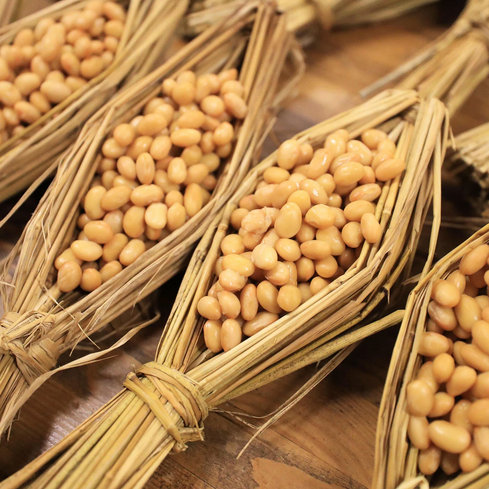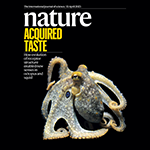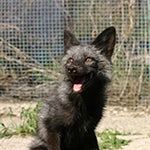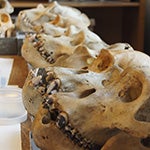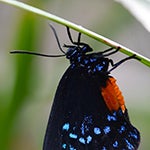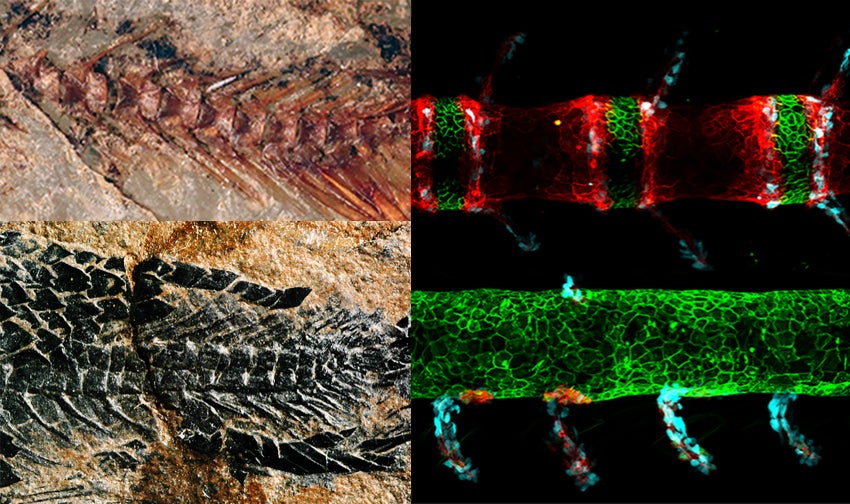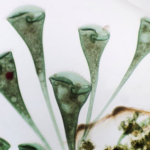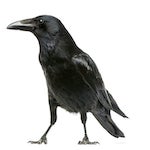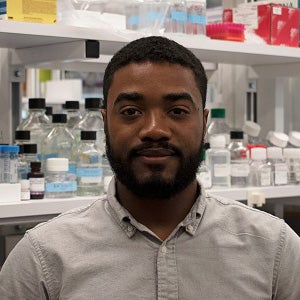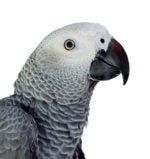Neuro Topics - Evolution
SEARCH OTHER RESEARCH AREAS
March 14, 2024
New research Erin Hecht and colleagues, first author Katherine L. Bryant (Aix-Marseille Université) puts fermentation, not fire, as pivot point behind our ancestors’ increasing cranial capacity.
Original article in: Nature >
February 16, 2024
One cell, the “midget retinal ganglion cell,” carries the vast majority of visual information from the eye to the brain in humans. It has been thought to be a primate-specific innovation, making it impossible to study in accessible model systems. Josh Sanes shares how, using molecular comparison of retinas from 17 vertebrate species, researchers from his team and that of former postdoc Karthik Shekhar, were able to trace back through evolution and identify mouse orthologues of midget cells.
Original article in: Nature >
April 20, 2023
The lab of Nick Bellono, along with colleagues at UC San Diego and UT Southwestern Medical Center, recently published two papers in Nature describing the path of divergent sensing capabilities in cephalopods by tracking their evolutionary lineage from common ancestral neurons.
Original article in: Nature >
July 7, 2021
Harvard Gazette article on new research from Erin Hecht and colleagues from the U.S and Russia demonstrating that foxes bred to be tame saw similar increases in gray matter volume as foxes bred to be aggressive when compared to a control group. This suggests that selection for opposite behaviors can influence brain morphology in a similar way.
Original article in: Journal of Neuroscience >
June 4, 2021
Harvard Gazette Q+A with David R. Williams on the mental and physical tolls discrimination take on Black lives and what individuals can do to help mitigate them.
Original article in: Journal of Neuroscience >
June 4, 2021
Harvard Gazette article profiling the research of Deirdre Barrett into how our dreams have changed during the COVID-19 pandemic.
Original article in: Journal of Neuroscience >
June 4, 2021
Harvard Gazette article on new research from a collaboration of more than 50 international scientists finding that Neanderthals and ancient humans adapted to eating starch-rich foods as far back as 100,000 years ago.
Original article in: PNAS >
March 9, 2021
Harvard Gazette article on new research from Naomi Pierce and colleagues, first author Marjorie A. Liénard, describing a novel method for isolating opsins, light-sensitive proteins found in the eyes of insects, and detailing their molecular history, structure, and function to determine what colors an insect can see.
Original article in: PNAS >
July 1, 2020
HMS News article on a new study from the labs of Matthew Harris and colleagues at Duke University Medical Center and the University of Kansas, bolstering confidence that fish can provide useful models of human spine biology and disorders.
Original article in: Current Biology >
December 19, 2019
HMS News article on new research from the lab of Jeremy Gunawardena, co-first authors Joseph P. Dexter and Sudhakaran Prabakaran, hinting at complex decision making in a single-cell organism.
Original article in: Current Biology >
September 12, 2019
Harvard Gazette profile on Samuel Mehr, director of Online Music Lab which studies questions of melody and harmony.
Original article in: Current Biology >
September 3, 2019
Harvard Gazette article on new research from the lab of Erin Hecht finding that that different breeds have different brain organizations owing to human cultivation of specific traits.
Original article in: Journal of Neuroscience >
August 22, 2019
After using tools, the birds behave more optimistically, study suggests.
Original article in: Current Biology >
August 14, 2019
The Landis Award is granted annually, with five researchers receiving $100,000 each to support their efforts in advancing the careers of students and postdoctoral fellows in their labs.
Original article in: Current Biology >
August 1, 2019
They were one of 44 doctoral advisor-student pairs awarded a Gilliam Fellowship for Advanced Study from HHMI.
Original article in: Current Biology >
February 28, 2019
The Fellowship encourages the nation's most promising young scientists to pursue careers in cancer research by providing them with independent funding ($231,000 total) to work on innovative projects.
Original article in: Current Biology >
February 28, 2019
Harvard Gazette article on recent work from Irene Pepperberg, Susan Carey, and colleagues, revealing the cognitive abilities of African grey parrots.
Original article in: Behaviour >
February 26, 2019
These two-year fellowships are awarded yearly to 126 researchers in recognition of distinguished performance and a unique potential to make substantial contributions to their field.
Original article in: Behaviour >
February 22, 2019
Reich, along with colleague Svante Pääbo, honored for their studies of ancient human DNA.
Original article in: Behaviour >

